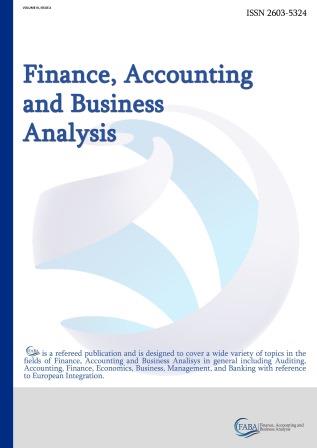Determinants of Bounded Rationality Theory to The Use of Indonesian Accounting Standards for Non-Publicly-Accountable Entities in SMEs
Determinants of Bounded Rationality Theory to The Use of Indonesian Accounting Standards for Non-Publicly-Accountable Entities in SMEs
Author(s): Siti Maghfiroh, Dona PrimasariSubject(s): Economy, Business Economy / Management, Accounting - Business Administration
Published by: Институт по публични финанси
Keywords: Indonesian Accounting Standards for Non-Publicly-Accountable Entities;SME;Bounded rationality theory
Summary/Abstract: The long-term purpose of this research is to enrich the development of knowledge, especially the development of SMEs related to the adoption of Indonesian Accounting Standards for Non-Publicly Accountable Entities using the concept of bounded rationality theory. The specific purpose of this research is to figure out the factors influencing the Indonesian Accounting Standards for Non-Publicly Accountable Entities in SMEs in Banyumas Regency. The research data were collected by distributing questionnaires through online media to the SME actors in Banyumas as the research respondents. A random sampling technique was used to collect the samples. The data were then analyzed using the Statistical Product and Service Solution (SPSS) version 22.0. The research results have empirically proved that the concept of bounded rationality theory can explain the factors influencing the adoption of Indonesian Accounting Standards for Non-Publicly Accountable Entities in SMEs in Banyumas Regency. a
Journal: Finance, Accounting and Business Analysis
- Issue Year: 3/2021
- Issue No: 2
- Page Range: 171-175
- Page Count: 5
- Language: English

